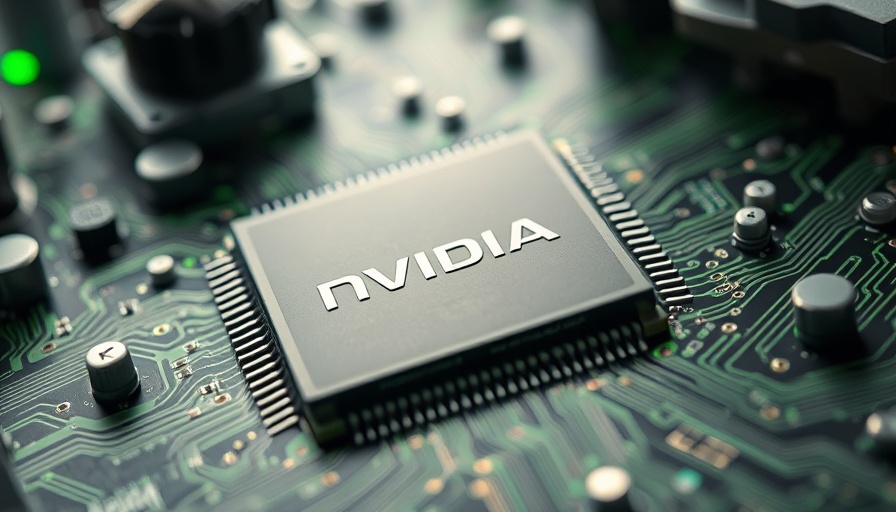
Nvidia's H20 AI Chip Production Halt: A Major Setback
Nvidia, a leading player in the tech industry, has reportedly halted production of its H20 AI chips amidst rising tensions over cybersecurity issues and national policies in China. This decision signals a noteworthy shift in the climate for American tech firms seeking to penetrate the lucrative Chinese market, an aspiration that has been complicated by regulatory scrutiny.
China's Warning Against Foreign Technology
The production halt, disclosed by The Information, follows a stern warning from the Chinese government advising local companies against employing Nvidia's chips due to security concerns. They fear that these chips might harbor backdoors, potentially allowing U.S. entities to access sensitive data. In response, the Chinese government has been promoting domestic chip alternatives, further complicating Nvidia's attempts to establish a foothold in this vast market.
Nvidia's Response to Cybersecurity Concerns
Nvidia has publicly defended its technology, asserting that it does not include backdoors that could compromise security. An official statement highlighted the company’s commitment to cybersecurity and market conditions, emphasizing their ongoing management of the supply chain. However, despite these assurances, the situation reveals the challenges that foreign tech companies face in gaining traction within China.
The Global Semiconductor Landscape
This disruption is not happening in isolation but reflects larger shifts in the global semiconductor industry, where geopolitical tensions and national security worries increasingly dominate discussions. Although Nvidia was initially given the green light to sell in China just weeks earlier, it has now found itself needing to respond rapidly to a volatile regulatory climate.
Future Trends and Predictions for AI Technology
The ramifications of this decision could impact tech firms globally as they navigate similar hurdles. Experts predict that with the growing emphasis on national security, we may see a shift towards more localized manufacturing, tightening the grip of domestic companies like Huawei or Alibaba in China. This could lead to a bifurcated technology ecosystem where local firms thrive, while foreign companies struggle to maintain relevance.
What This Means for Consumers and Businesses
For consumers and businesses, the halt in production poses questions about the availability and reliability of AI technologies in the near future. Businesses invested in AI development and deployment must now reassess their strategies and possibly redirect towards alternative solutions. Such dynamics may drive up costs or delay technological advancements that rely on critical components from companies like Nvidia.
Taking Action in a Changing Market
In dealing with these changes, consumers and businesses should stay informed of ongoing developments in technology news. Understanding the implications of geopolitical events on product availability and pricing informs smarter purchasing decisions. Businesses relying on AI should also maintain flexibility to adapt to emerging trends and local opportunities.
Conclusion
The halt in production of Nvidia's H20 AI chips not only underscores a pivotal moment for the company but also serves as a microcosm of the ongoing challenges for foreign tech firms in China. As geopolitical tensions escalate, so too will the complexities of the global technology landscape. To stay ahead, it's crucial to remain aware of these developments and their potential impact on the tech roster, while actively seeking domestic alternatives in response to shifting market dynamics.
 Add Row
Add Row  Add
Add 



Write A Comment